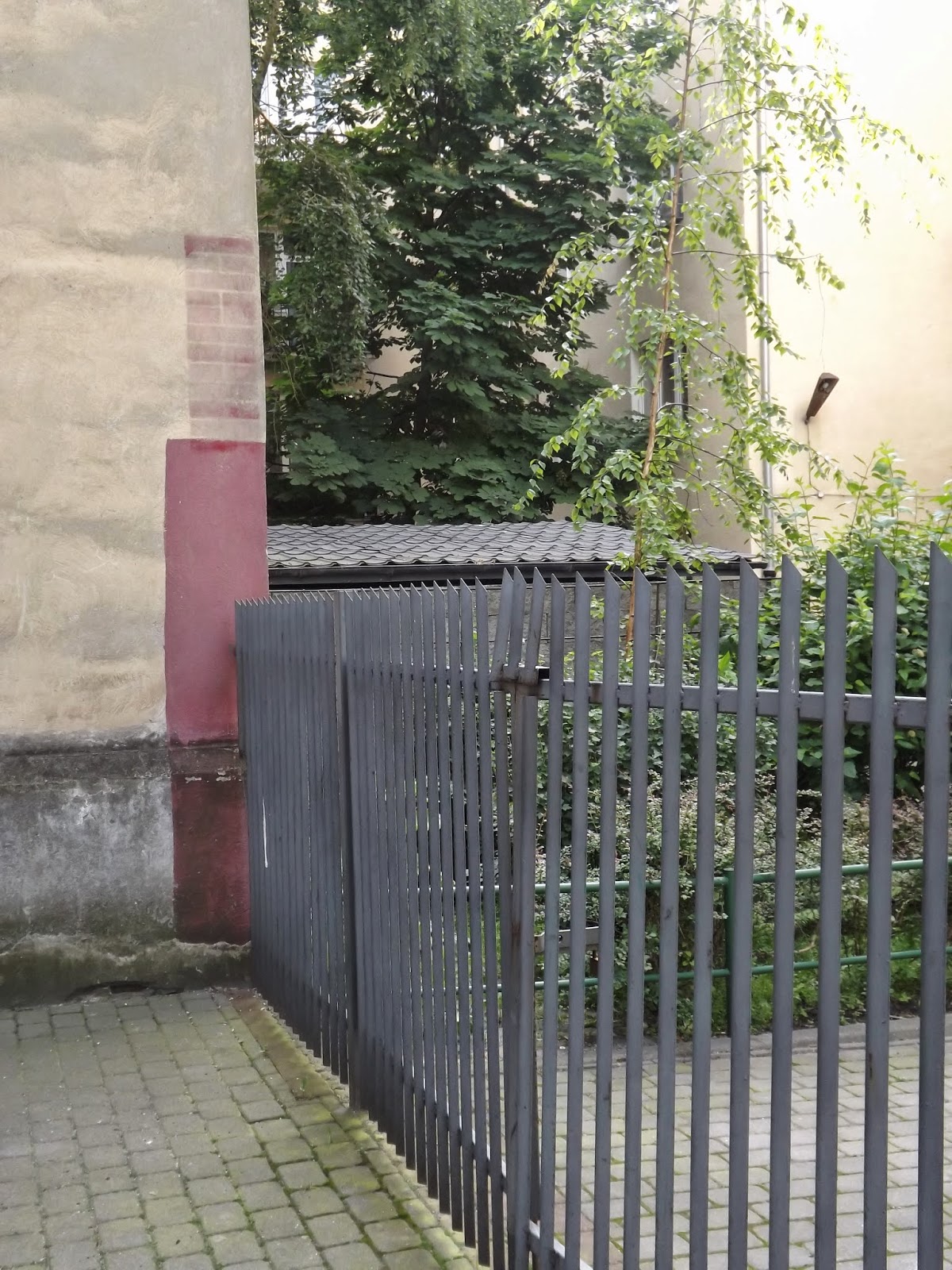by Adrienne Le
In the midst of all the excitement of these first few days in Warsaw, this boy sitting with his balloons gave me a moment of reflection. Spotting him in the Old Town square made me pause and recognize that while I am experiencing the whirlwind that is HiA Polska, I should not overlook the small details of daily life that go on in Warsaw.
by Adrienne Le
Visiting Praga was an eye opening experience. I know that every city has its poorer neighborhoods; even so, I was somewhat caught off guard walking through these dilapidated apartment complexes and seeing children playing in the alleyways. It was a reminder of the reasons why so many of us have come to HiA -- because we are inspired to make life better for a greater number of people. I think it was extremely important for us to see this side of Warsaw.
by Daniel Slomka
by Dylan Kitts (the picture was made by Nadiia)
This is the picture I will choose from the tour. I chose this for a few reasons. First and foremost, the greenery. Warsaw's green abundance makes the city's beauty unique and lively. Secondly, the significance of this museum represents -- in some ways -- a society that is trying to accommodate to a minority group, respect/promote/appreciate its diverse culture, and realize its past. Thirdly, the architecture of museum is truly modern and creative -- not like "Old" Town!
by Jarmiła Rybicka
Layers of the Warsaw Ghetto by Jasmine Burton
Abstract in nature, these photos capture the past (the brick), the present (the red and white flowers) and the future (the hand) of the Warsaw ghetto. These photos connect tangible things to a common humanity.
by Kasia Balas
by Kathrin Fischer
by Lendsey Achudi
by Michael Williams
I captured an image of Castle Square and was drawn to it because I believe that public space has the ability to be a magnet and incubator for diversity and positive exchange of people and ideas. Public space (should) serves as a great equalizer for those who are in it, despite specific identities or backgrounds.
by Mil Dranoff
The significance of a woman as a protector
by Sudip Bhandari
The vibrant colors of the buildings in Warsaw immediately caught my attention. I am aesthetically pleased.
by Sylwia Wodzińska
Warsaw appears to me as a troubled city, stories of which rooted in the invisible cartography of past times. Each street hides more than it reveals and I feel that in order to get through the jungle of complex history I really needed a local guide. The city strikes me as an eclectic collage of random images which at first sight might not make much sense. Many beautiful buildings are overshadowed by the kitsch neon lights of local shops. The streets are wide, contributing to the image of vast space, yet somehow I still feel lost in its architectural chaos. On top of that there is the Holy Mary that gives me shy looks from each and every corner…
by Weronika Romanik
by Weronika Romanik
by Łukasz Niparko
Campo dei Fiori
BY CZESLAW MILOSZTRANSLATED BY LOUIS IRIBARNE AND DAVID BROOKS
In Rome on the Campo dei Fiori
baskets of olives and lemons,
cobbles spattered with wine
and the wreckage of flowers.
Vendors cover the trestles
with rose-pink fish;
armfuls of dark grapes
heaped on peach-down.
On this same square
they burned Giordano Bruno.
Henchmen kindled the pyre
close-pressed by the mob.
Before the flames had died
the taverns were full again,
baskets of olives and lemons
again on the vendors' shoulders.
I thought of the Campo dei Fiori
in Warsaw by the sky-carousel
one clear spring evening
to the strains of a carnival tune.
The bright melody drowned
the salvos from the ghetto wall,
and couples were flying
high in the cloudless sky.
At times wind from the burning
would drift dark kites along
and riders on the carousel
caught petals in midair.
That same hot wind
blew open the skirts of the girls
and the crowds were laughing
on that beautiful Warsaw Sunday.
Someone will read as moral
that the people of Rome or Warsaw
haggle, laugh, make love
as they pass by the martyrs' pyres.
Someone else will read
of the passing of things human,
of the oblivion
born before the flames have died.
But that day I thought only
of the loneliness of the dying,
of how, when Giordano
climbed to his burning
he could not find
in any human tongue
words for mankind,
mankind who live on.
Already they were back at their wine
or peddled their white starfish,
baskets of olives and lemons
they had shouldered to the fair,
and he already distanced
as if centuries had passed
while they paused just a moment
for his flying in the fire.
Those dying here, the lonely
forgotten by the world,
our tongue becomes for them
the language of an ancient planet.
Until, when all is legend
and many years have passed,
on a new Campo dei Fiori
rage will kindle at a poet's word.
Warsaw, 1943
By Łukasz Posłuszny
By Arne Semsrott



















No comments:
Post a Comment